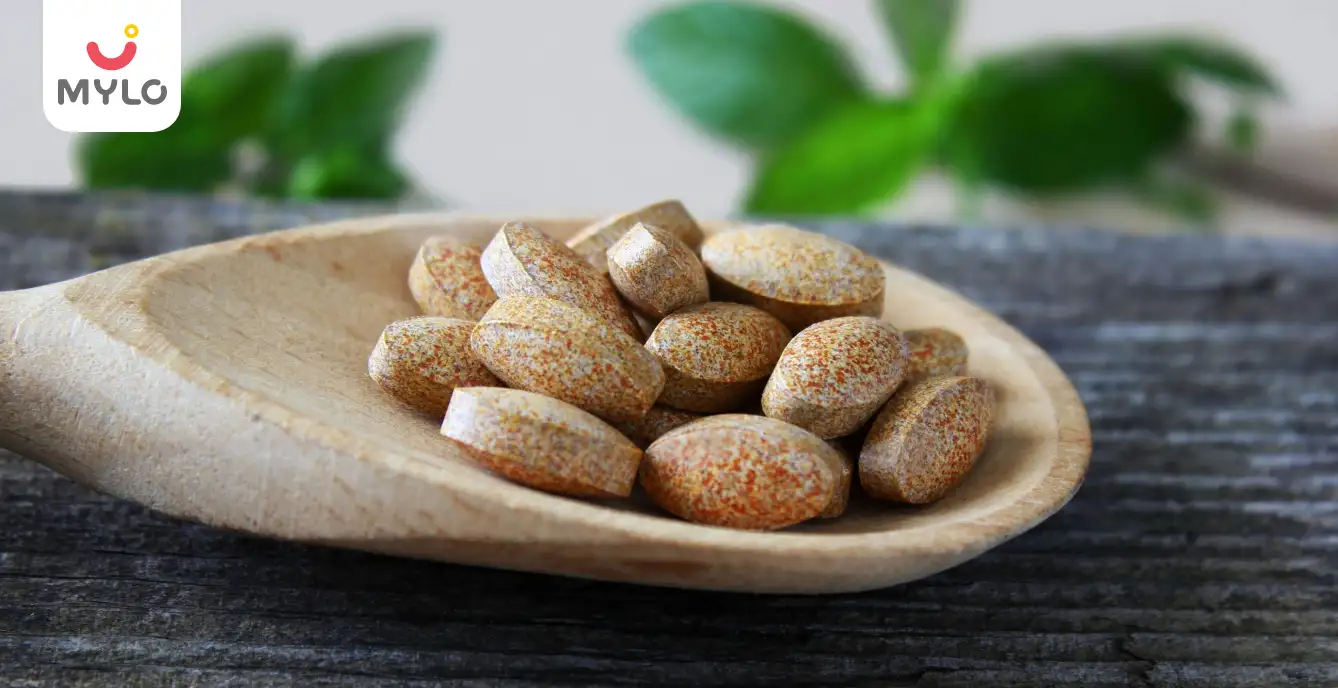Home

Common Health Problems

The Ultimate Guide to Thyroid Treatment in Ayurveda
In this Article

Common Health Problems
The Ultimate Guide to Thyroid Treatment in Ayurveda
Updated on 7 November 2023
In today's fast-paced world, thyroid disorders have become increasingly common, affecting millions of people worldwide. While conventional medicine offers various treatment options, many individuals are searching for thyroid treatment in Ayurveda. This is because Ayurveda offers a more holistic and sustainable approach to thyroid management.
In this comprehensive guide, we will understand the root causes of thyroid disorder as per Ayurvedic principles as well as the medicines and remedies recommended by Ayurveda to treat these disorders.
What are the Causes of Thyroid Disorders According to Ayurveda?
According to Ayurveda, imbalances in the doshas - Vata, Pitta, and Kapha - can lead to thyroid problems. Here are five causes of thyroid disorders according to Ayurveda:
1. Imbalanced Vata Dosha
When the Vata dosha is out of balance, it can lead to an underactive thyroid or hypothyroidism. This can cause symptoms such as fatigue, weight gain, and depression. Ayurvedic treatments for balancing Vata dosha include lifestyle changes, dietary modifications, and specific herbs and supplements.
2. Aggravated Pitta Dosha
An aggravated Pitta dosha can lead to an overactive thyroid or hyperthyroidism. This can result in symptoms like weight loss, increased heart rate, and irritability. Ayurvedic treatments for balancing Pitta dosha involve cooling and calming therapies, including herbs like Brahmi and Shankhpushpi.
3. Kapha Imbalance
A Kapha imbalance can also contribute to thyroid disorders. When Kapha dosha is imbalanced, it can lead to sluggish metabolism and weight gain. Ayurvedic treatments for balancing Kapha dosha include detoxification therapies, exercise, and herbs like Guggulu and Trikatu.
4. Poor Digestion
According to Ayurveda, poor digestion can disrupt the proper functioning of the thyroid gland. To improve digestion, Ayurvedic remedies include incorporating spices like ginger, cumin, and turmeric into meals, practicing mindful eating, and avoiding heavy, processed foods.
5. Toxicity
Toxins in the body can also affect thyroid health. Ayurvedic treatments for detoxification, such as Panchakarma, help remove toxins from the body and promote overall well-being. These treatments may include oil massages, herbal steam baths, and enemas.
You may also like: Vata Pitta Kapha: The Ultimate Guide to Discovering Your Ayurvedic Constitution
Ayurvedic Medicine for Thyroid
Ayurveda offers a range of herbal medicines that can help support thyroid health. Here are five Ayurvedic medicines commonly used for thyroid treatment:
1. Kanchanar Guggulu
This traditional Ayurvedic formulation contains herbs like Kanchanar, Guggulu, and Triphala. It is known for its detoxifying and rejuvenating properties and is often used to support the thyroid gland.
2. Ashwagandha
Ashwagandha, also known as Indian ginseng, is an adaptogenic herb that helps balance hormones, reduce stress, and support thyroid function. It is considered one of the best Ayurvedic medicine for thyroid and is available in various forms, including capsules, powders, and liquid extracts.
3. Varuna
Varuna, also known as Crataeva nurvala, is a powerful herb that helps regulate thyroid function. It can be taken in the form of thyroid Ayurvedic tablets or as a decoction.
4. Jatamansi
Jatamansi, or spikenard, is a herb that has been used in Ayurveda for centuries. It helps reduce stress and anxiety, which can be beneficial for individuals with thyroid disorders.
5. Punarnava
Punarnava, also known as Hogweed, is a diuretic herb that helps eliminate excess fluid from the body. It can be beneficial for individuals with hypothyroidism who experience water retention.
You may also like: Thyroid: Types, Causes, Symptoms & Treatment
Ayurvedic Remedy for Thyroid
In addition to Ayurvedic medicines, there are various remedies that can be used to support thyroid health. Here are five Ayurvedic remedies for thyroid:
1. Dietary Modifications
Ayurveda emphasizes the importance of a balanced diet for maintaining overall health, including thyroid health. Including foods like seaweed, coconut oil, and ghee in your diet can help support thyroid function.
2. Yoga and Pranayama
Yoga poses and breathing exercises, known as Pranayama, can help regulate the endocrine system, including the thyroid gland. Specific poses like Sarvangasana (shoulder stand) and Matsyasana (fish pose) are beneficial for thyroid health.
3. Herbal Teas
Drinking herbal teas made from herbs like ginger, tulsi (holy basil), and licorice can help support thyroid function. These herbs have anti-inflammatory and antioxidant properties that can benefit individuals with thyroid disorders.
4. Daily Exercise
Engaging in regular physical activity is important for maintaining overall health, including thyroid health. Ayurveda recommends exercises like walking, swimming, and yoga for individuals with thyroid disorders.
5. Stress Management
Stress can have a negative impact on thyroid health. Ayurvedic practices like meditation, deep breathing, and regular relaxation techniques can help manage stress and promote overall well-being.
Thyroid Treatment in Ayurveda
In addition to Ayurvedic medicine for thyroid, there are other treatment options available for individuals with thyroid disorders. Here are five other Ayurvedic treatment options:
1. Abhyanga
Abhyanga is a traditional Ayurvedic oil massage that helps balance the doshas and promote overall well-being. Regular abhyanga can help support thyroid health by improving blood circulation and reducing stress.
2. Shirodhara
Shirodhara is a therapeutic procedure in which warm oil is poured in a continuous stream over the forehead. It helps calm the nervous system, reduce stress, and support thyroid function.
3. Nasya
Nasya involves the administration of herbal oils or powders through the nostrils. It is believed to balance the doshas and promote overall nasal and sinus health, which can indirectly benefit the thyroid gland.
4. Ayurvedic Supplements
Ayurvedic supplements, such as Triphala and Brahmi, can be beneficial for individuals with thyroid disorders. These supplements help support overall health and well-being.
5. Lifestyle Modifications
Making lifestyle modifications, such as getting enough sleep, managing stress, and maintaining a healthy weight, can have a positive impact on thyroid health. Ayurveda emphasizes the importance of a holistic approach to well-being.
FAQs
1. Which is the best Ayurvedic medicine for thyroid?
The best medicine for thyroid varies depending on the individual and their specific condition. It is always recommended to consult with a qualified Ayurvedic practitioner who can assess your symptoms and provide personalized recommendations.
2. Which ingredients are commonly used in thyroid Ayurvedic tablets?
Ayurvedic tablets for thyroid often contain a combination of herbs like Kanchanar, Guggulu, Ashwagandha, Varuna, and Jatamansi. These herbs have been traditionally used in Ayurveda for their beneficial effects on thyroid health.
Final Thoughts
Thyroid disorders can significantly impact one's quality of life, but Ayurveda offers a holistic approach to treatment. By addressing the root causes and supporting the body's natural healing mechanisms, thyroid treatment in Ayurveda can help restore balance and promote thyroid health. With the right approach, Ayurveda can be a valuable tool in managing thyroid disorders and achieving overall well-being.
References
1. Singh K, Thakar AB. (2018). A clinical study to evaluate the role of Triphaladya Guggulu along with Punarnavadi Kashaya in the management of hypothyroidism. Ayu.
2. Singh K, Rais A, Thakar AB. (2019). Management of hypothyroidism by Kshara Basti (therapeutic enema)- A case report. Ayu.
3. Sharma AK, Basu I, Singh S. (2018). Efficacy and Safety of Ashwagandha Root Extract in Subclinical Hypothyroid Patients: A Double-Blind, Randomized Placebo-Controlled Trial. J Altern Complement Med.



Written by
Anupama Chadha
Anupama Chadha, born and raised in Delhi is a content writer who has written extensively for industries such as HR, Healthcare, Finance, Retail and Tech.
Read MoreGet baby's diet chart, and growth tips

Related Articles
Related Questions
Hello frnds..still no pain...doctor said head fix nhi hua hai..bt vagina me pain hai aur back pain bhi... anyone having same issues??

Kon kon c chije aisi hai jo pregnancy mei gas acidity jalan karti hain... Koi btayega plz bcz mujhe aksar khane ke baad hi samagh aata hai ki is chij se gas acidity jalan ho gyi hai. Please share your knowledge

I am 13 week pregnancy. Anyone having Storione-xt tablet. It better to have morning or night ???

Hlo to be moms....i hv a query...in my 9.5 wk i feel body joint pain like in ankle, knee, wrist, shoulder, toes....pain intensity is high...i cnt sleep....what should i do pls help....cn i cosult my doc.

Influenza and boostrix injection kisiko laga hai kya 8 month pregnancy me and q lagta hai ye plz reply me

RECENTLY PUBLISHED ARTICLES
our most recent articles

Pimples and Acne
Ayurvedic Treatment for Acne: Holistic Healing for Clear Skin

Ayurveda & Homeopathy
Gokshuradi Guggulu: Ayurveda's Solution for UTI and Kidney Support

Menstrual Cycle
The Surprising Benefits of Dark Chocolate for Periods

Common Health Problems
How to Reduce Air Pollution in Your Daily Life

Hormones
Normal Prolactin Levels to Get Pregnant: What You Need to Know

Early Pregnancy
What Causes Low HCG Levels in Early Pregnancy & How to Increase It?
- Top 10 Babymoon Destinations in India for Expecting Parents
- Understanding the Reasons & Solutions for a Baby Not Eating Food
- The Ultimate Guide on How to Delay Periods Naturally
- গর্ভাবস্থায় আলুবোখরা: উপকারিতা ও ঝুঁকি | Prunes During Pregnancy: Benefits & Risks in Bengali
- গর্ভাবস্থায় হিং | ঝুঁকি, সুবিধা এবং অন্যান্য চিকিৎসা | Hing During Pregnancy | Risks, Benefits & Other Treatments in Bengali
- স্তনের উপর সাদা দাগ: লক্ষণ, কারণ এবং চিকিৎসা | White Spots on Nipple: Causes, Symptoms, and Treatments in Bengali
- গর্ভাবস্থায় পোহা: উপকারিতা, ধরণ এবং রেসিপি | Poha During Pregnancy: Benefits, Types & Recipes in Bengali
- গর্ভাবস্থায় মাছ: উপকারিতা এবং ঝুঁকি | Fish In Pregnancy: Benefits and Risks in Bengali
- গর্ভাবস্থায় রেড ওয়াইন: পার্শ্ব প্রতিক্রিয়া এবং নির্দেশিকা | Red Wine During Pregnancy: Side Effects & Guidelines in Bengali
- ইনার থাই চ্যাফিং: কারণ, উপসর্গ এবং চিকিৎসা | Inner Thigh Chafing: Causes, Symptoms & Treatment in Bengali
- গর্ভাবস্থায় ব্রাউন রাইস: উপকারিতা ও সতর্কতা | Brown Rice During Pregnancy: Benefits & Precautions in Bengali
- Velamentous Cord Insertion - Precautions, Results & Safety
- Unlock the Secret to Flawless Skin: 7 Must-Have Qualities in a Face Serum
- Unlock the Secret to Radiant Skin: How Vitamin C Serum Can Transform Your Complexion


AWARDS AND RECOGNITION

Mylo wins Forbes D2C Disruptor award

Mylo wins The Economic Times Promising Brands 2022
AS SEEN IN

- Mylo Care: Effective and science-backed personal care and wellness solutions for a joyful you.
- Mylo Baby: Science-backed, gentle and effective personal care & hygiene range for your little one.
- Mylo Community: Trusted and empathetic community of 10mn+ parents and experts.
Product Categories
baby carrier | baby soap | baby wipes | stretch marks cream | baby cream | baby shampoo | baby massage oil | baby hair oil | stretch marks oil | baby body wash | baby powder | baby lotion | diaper rash cream | newborn diapers | teether | baby kajal | baby diapers | cloth diapers |




